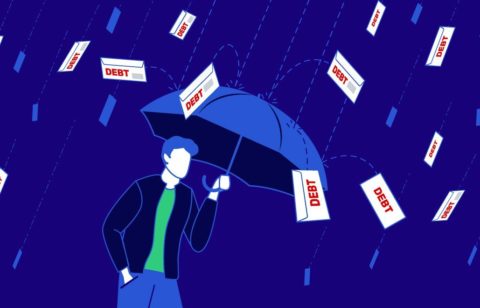Launched in 2012, The Rolling Jubilee Fund cancels various forms of personal debt. Working with organizations like the Debt Collective, Rolling Jubilee also aims to ensure public education about debt with the goal of changing the way the debt system works. A project of the Strike Debt organization, which in turn grew out of the Occupy Wall Street movement, here’s a look at Rolling Jubilee’s ingenious plan to cancel personal debt.
How Rolling Jubilee Works
Some investment companies buy up personal debt for pennies on the dollar and hire agencies to collect as much of it at face value as possible. This can be very profitable. They can often recover as much as three times what they invest, often by forcing people into legal settlements.
The Rolling Jubilee Fund also purchases consumer debt—using money raised through Crowdfunding. However, Rolling Jubilee cancels that debt instead of trying to collect on it. The people behind the Fund call this a tax-free gift to the people whose debt is cancelled as a result of its efforts.
The organization’s primary goal is to shine on a light on the predatory practices of the debt industry and how they keep people struggling.
Who The Fund Helps
According to an article in USA Today, many of the people who have been helped by the Fund didn’t realize their debt was still active and could have come back to haunt them at some point. Known as Zombie debt, these obligations had aged out of the legal system, but could have been revived if the people owing the money were convinced to take ownership of them. The people at Rolling Jubilee consider themselves to be conducting a bailout of the people by the people. They say the government bailed out the banks when they got in trouble, but nobody helped the people the banks harmed.
Is This Right?
The Rolling Jubilee Fund buys debts, just as investors do. The difference is they cancel the debts instead of collecting on them. Monies donated to The Rolling Jubilee Fund are understood to be for that purpose, so the effort is perfectly legal.
On the other hand, some people might question whether it’s right to “just let people off the hook,” so to speak. After all, lots of people get debts and pay them off as promised. What’s more, financial responsibility is a very important part of our culture.
However, as with so many other things in life, there are varying shades of gray to look at here. There are situations in which people took on debt to pay for educations only to graduate into a recession when there were no jobs to be had. Other people have been injured in accidents that weren’t their fault. And now, in addition to being disabled, they have medical bills that will take the rest of their lives to pay.
Yes, financial responsibility is an important part of our way of life. But there is also a need to make sure situations like those above don’t trap people into a never ending cycle of owing more than they can ever earn through no fault of their own.
Is It Working?
The Rolling Jubilee Fund, working with an organization called the Debt Collective, has canceled nearly $32 million in debt. Much of this is medical debt, student loan debt and payday loans.
In the overall scheme of things, $32 million isn’t a whole lot when you consider the average American household carries nearly $170,000 of debt. However, The Fund’s organizers say their goal is to raise public awareness about the impact of consumer debt and to apply pressure on government regulators to hold banks accountable for their roles in the credit crisis.







